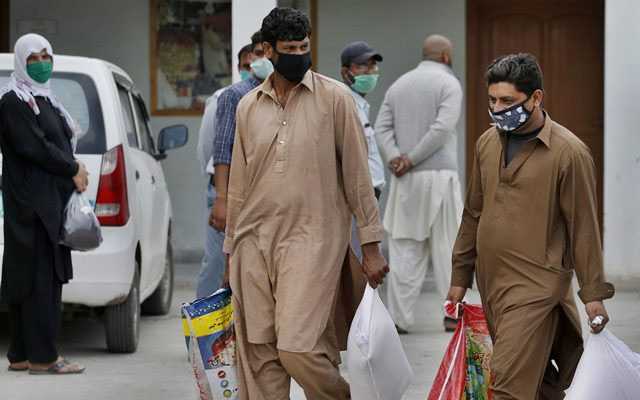WHO urges Pakistan to impose two-week intermittent lockdown

The World Health Organisation (WHO) has alerted Pakistan to its high positive rate of COVID-19. The country has been placed among the top 10 countries in the world reporting the highest number of new cases of Covid-19 and advised the government to enhance daily testing capacity to 50,000 to assess the actual number of coronavirus cases across the country.
WHO, in an open letter to Pakistan expressed concern on lifting the restrictions saying that the country did not meet any of the prerequisites for opening of the lockdown.
The organization also pointed out the poor efforts of the government of Pakistan to contain the deadly infection advising the country to impose two-week lockdown
“WHO strongly recommends the two weeks off and two weeks on strategy as it offers the smallest curve,” the letter said.
The government of Pakistan was also advised to raise the testing capacity beyond 50,000 tests per day.
WHO, while alerting Pakistan to its high positivity with weak surveillance system, said: “The positivity rate is high at 24% (above the required level of 5%), the surveillance system (identify, test, isolate, care for the ill including identification and follow up of contacts and quarantining) is weak.”
“There is a limited capacity to provide critical care (only 751 ventilators are allocated for Covid-19), WHO said adding that, “the population is not ready to adapt to change in behaviour (hand washing, respiratory etiquettes and social distancing)”
The letter concluded that Pakistan needs to take strategic decisions to either tighten or loosen public health measures, while ensuring economic prosperity, human rights and food security.
“These decisions will require the need to balance response directly to Covid-19, which includes intermittent lockdowns of target areas (districts, towns, section of the town or village) as a first option and should be dealt on priority basis while simultaneously engaging in strategic planning and coordinated action to maintain essential health services delivery, mitigating the risk of system collapse,” the letter added.
In case, the government wants to start easing restrictions, various conditions must be met such as virus transmission remained under control, the statement said adding that the country’s health system should be able to “detect, test, isolate and treat every case and trace every contact”.
“As of today, Pakistan does not meet any of the pre-requisite conditions for opening the lockdown,” saying that “the virus had spread to every nook and corner of Pakistan”.
“The pandemic has reached to almost all the districts of Pakistan while major cities contributed the highest number of cases nationally including Karachi 33.72pc, Lahore 18.5pc, Peshawar 5.31pc, Quetta 5.25pc, and Rawalpindi 3.35pc,” the letter stated.
WHO while criticising the government decision to ease the restrictions said that it caused the increase in the number of Covid-19 cases in Pakistan. “After partial relaxation of measures on 1st May 2020, then followed by complete relaxation on 22nd May, the rate of spread of Covid-19 increased in Pakistan”.






